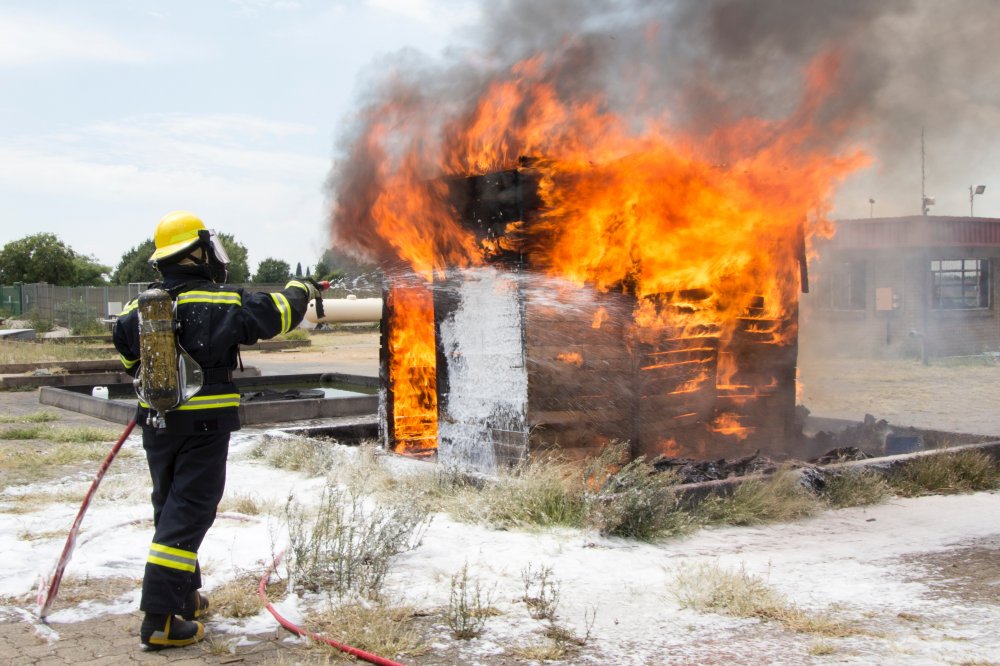Help, My Job is a Dumpster Fire!
January 22nd, 2024
To be clear, it is not my job that is a dumpster fire but instead it is the professionals that I work so closely with. Higher Education, especially in Student Activities and Student Affairs, is a profession that is more than a little troubled. For those that live it day to day, this is not news. For better or worse, this goes back to before the pandemic and it has just gotten worse since COVID 19 made its unwelcome appearance. If you want a 9 to 5 high paying job, then don’t go into the world of Student Affairs. Hours are long and at peak times, like Welcome Weeks and Spring Weeks, they get even longer. At those times of the year, 7-day 80-hour weeks are not uncommon. Yet, they are some of the lowest paying professional positions on campuses. Many young professionals take a second job in retail or at a restaurant to make ends meet. People go into this field because they want to make a difference, help people, and develop community.
Recently, the Chronicle of Higher Education published an article titled “What to Do About Burnout in Student Affairs https://www.chronicle.com/article/what-to-do-about-burnout-in-student-affairs. It was a pretty good article on a subject that many people have been talking about since before the pandemic hit. No question that COVID had a severely negative impact on the profession, but the article, in my opinion, didn’t go far enough. To try to frame it properly, the author interviewed several student affairs professionals and by the tone and information provided it seemed as if they were senior or more senior level professionals. They talked about setting boundaries and supporting staff members in an ever-changing profession. As “an old dog” in my chosen profession, it was interesting to read the thoughts of these professionals as they discuss that in their past they worked 50 to 60 hours a week and are finding that the professionals of today simply have no interest in working that kind of a schedule.
This article mentioned that during the height of COVID, as schools reopened and dealt with cases of the virus popping up, it was often members of the Residence Life staff and the Student Affairs staff that were tasked with implementing quarantine procedures, assisting with testing, and even bringing meals to students. What the article failed to mention was that many schools had furloughed those same staff members when the students were sent home or downsized those offices. Along with that, these same people often had to defend the very existence of their jobs as faculty and some staff questioned why, in a pandemic, were these positions needed. Many professors refused to return to campus when the students did and continued to teach remotely while Residential Life and Student Activities offices often were never or barely closed during the pandemic, even at its height. They were told that they needed to return to campus as soon as, if not before, the students returned. Fall of 2020 was crazy as schools tried to program for the students that were on campus while following CDC guidelines for social distancing, vaccinations, and hand and equipment sanitizing. Many of the events we worked had social distancing signs and what appeared to be giant hula hoops on the ground marking 6-foot circles that roommates or pods could be in.
One can argue that things on college campuses have returned to normal. For the casual observer that is how it may appear, but nothing could be further from the truth. Offices, that in the past had their pick of graduate assistants eager to go into the field, are begging anyone in grad school to come work in their offices. Long time professionals are discouraged and dragging. They are fighting to get decent wages for staff and title changes to reflect the breadth of what they do. Residence Life and Student Activities offices all over the country are understaffed and struggling to keep up with the demands placed on their offices. It is no longer clear, in many instances, what the priorities are. In the past, many institutions were all about assessment; what did students learn from attending a program or how many people attended. Now it is often just about the numbers of programs that are done. Quality is, at times, not a consideration by those in positions of high authority. It is more important to tell parents that they did 100 programs this past year.
Schools are also poorly equipped to handle the student of 2024, in some cases. Post pandemic students are VERY different from those that entered and finished school prior to March 2020. We were already starting to see an uptick of anxiety and students feeling isolated and overwhelmed but that is now almost the norm in a post pandemic world. High School in the world before COVID was bad enough. It is an awkward time in the lives of many teens, but COVID made it even worse. Now these socially awkward/immature 18 – 22 year-olds are in college and floundering to find their social footing. Having Bulldozer or snowplow parents, who try and get rid of any obstacles in the path of these young adults, doesn’t help. Many have no clue how to speak up and advocate for themselves since they have never had to do it.
One of the great recruitment tools that organizations had for years were their members. Those people were walking billboards, touting the value of getting involved but COVID broke that cycle. Schools that were remote for 2 or 3 semesters, if not longer, lost any continuity with organizational members. Those that are on campus now haven’t seen these clubs and organizations operating in a full speed ahead mentality with robust membership. It is hard for them to envision what that looks like or why it is valuable to them. It is a slow rebuilding process, but it is happening. Many of us wish it would happen sooner as what you gain by being involved are skills that you will use the rest of your life.
Perhaps calling things a dumpster fire is hyperbole and unfair. It is hard for me to watch what is going on. Not only have we lost some really great people from the field, but it is getting harder and harder to replace them. Trying to convince a college junior or senior with a pile of debt that a career in higher ed is perfect for them is a tough sell. Yet, there seem to be no shortages of well-paid Deans, associate Deans, Vice Presidents, and Associate VP’s, on many of those same campuses. My clients are not (for the most part) at that level. Many have passed on higher paying jobs because they really love what they do and know they are making a difference in the lives of their students. Sitting on the sidelines it is still hard to watch. There is no simple fix to this problem. With shrinking enrollments and some lingering financial challenges from COVID, it is hard for institutions to pay these people anywhere near what they are worth without making cuts elsewhere. Faculty still undervalues the roll that these people play in retention and the student experience, and many parents have no idea there is an issue. If you are a parent with kids in college, instead of complaining that there is nothing for your child to do, you can pop your head into one of those offices, send an email or simply call and say thank you. Trust me it would go a long way.
About the author
Ken Abrahams has been working with colleges and universities helping them plan events for the better part of 40 years. During that time, he has seen lots of changes in the profession but nothing that had a greater impact than COVID.
To find out more about the company go to our website www.funent.com you can also go to this link to sign up for our newsletter which comes out about 6 times a year https://funent.com/subscribe-to-the-funny-pages/. Our newsletter will tell you more about the company and the products and services we offer as well as some games, things to do, and the occasional cooking tip.
Categories
Archive
Put More Fun In Your Life
Put More FUN In Your Life!
Call Us!
(781) 436-3187
Subscribe to the Funny Pages
Looking for the latest news on what's happening around FUN Enterprises? Sign up to receive our monthly newsletter, The Funny Pages, and be the first to get tips from our professional staff, hear about sales and promotions, solve the monthly trivia, and more!













